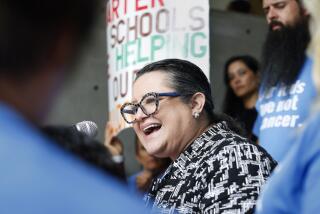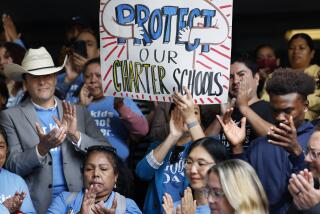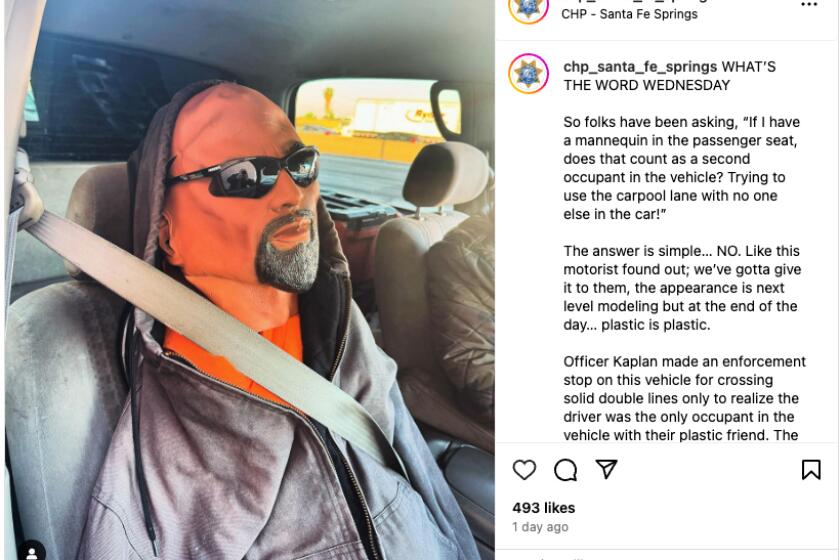California moves toward new limits on charter schools
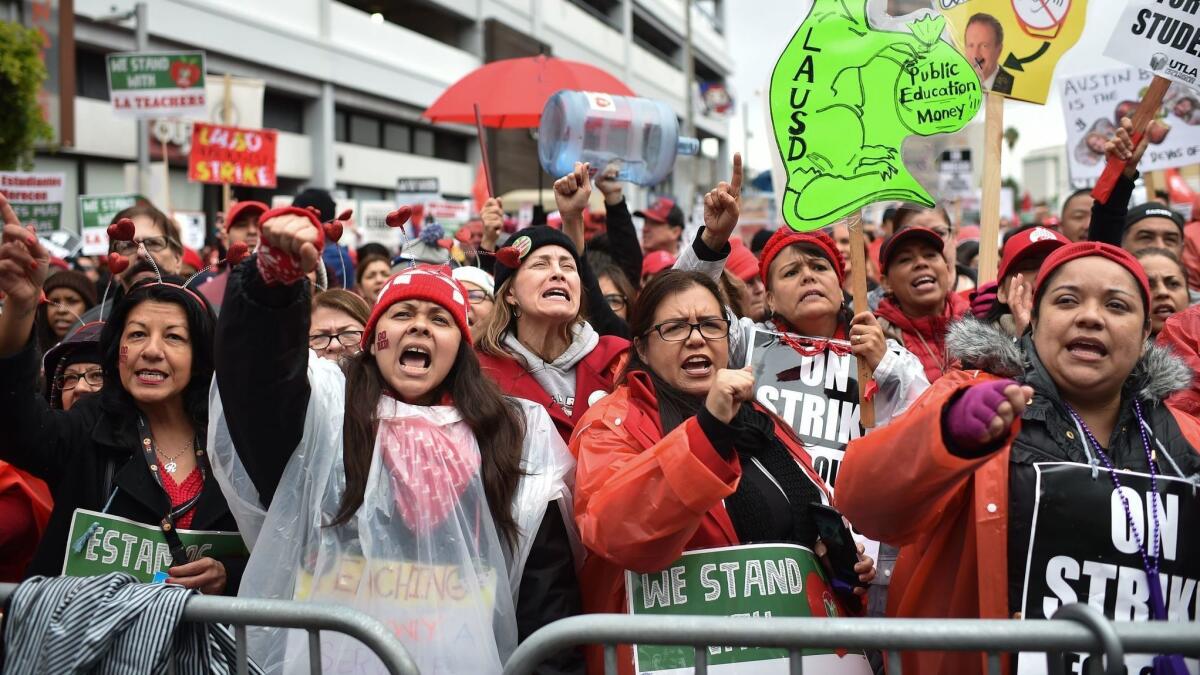
When Los Angeles teachers went on strike in January, a major issue was charter schools: Union leaders talked about halting the growth of these privately operated campuses and exerting more local control over where and how these schools operate.
California took a step in that direction last week with the release of a much-awaited report by a task force set up in the wake of the six-day walkout.
The report supports new restrictions on charters and is expected to shape statewide policy.
One of the most important recommendations was to give a school district more authority when a charter seeks to open within its boundaries. Under current law, a school district must approve the opening of any charter that meets basic requirements.
The idea was to spark competition and give parents high-quality options for their children — and thousands of parents have responded enthusiastically. Charters enroll nearly one in five students in the nation’s second-largest school system.
But one result has been a proliferation of charters in some neighborhoods. Because state funding is based on enrollment, charters as well as district schools have been hard-pressed to attract enough students to remain financially viable, making it difficult to provide a stable academic program.
To address that situation, the task force recommends allowing a school district to forbid the opening of a new charter based on “saturation.” Charter critics say saturation already has become a problem in Boyle Heights and parts of South Los Angeles.
The recommendation on saturation received endorsement from the entire panel, which includes representatives of charter schools.
A smaller bloc, but still a panel majority, would go further. It recommended that school districts be able to deny a proposed charter based on financial harm to the host school district.
The panel did not release details on how individual members voted, but charter groups have vehemently opposed such a restriction. They have argued it could be used to deny any charter petition.
“There are elements that are deeply concerning and require more work ahead,” said Myrna Castrejón, president of the California Charter Schools Assn. “But ultimately, these efforts will play a pivotal role in charting a path forward for California’s students.”
State Supt. of Public Instruction Tony Thurmond put together the task force at the request of Gov. Gavin Newsom. Teachers union leaders hailed the governor’s willingness to convene the task force as a victory.
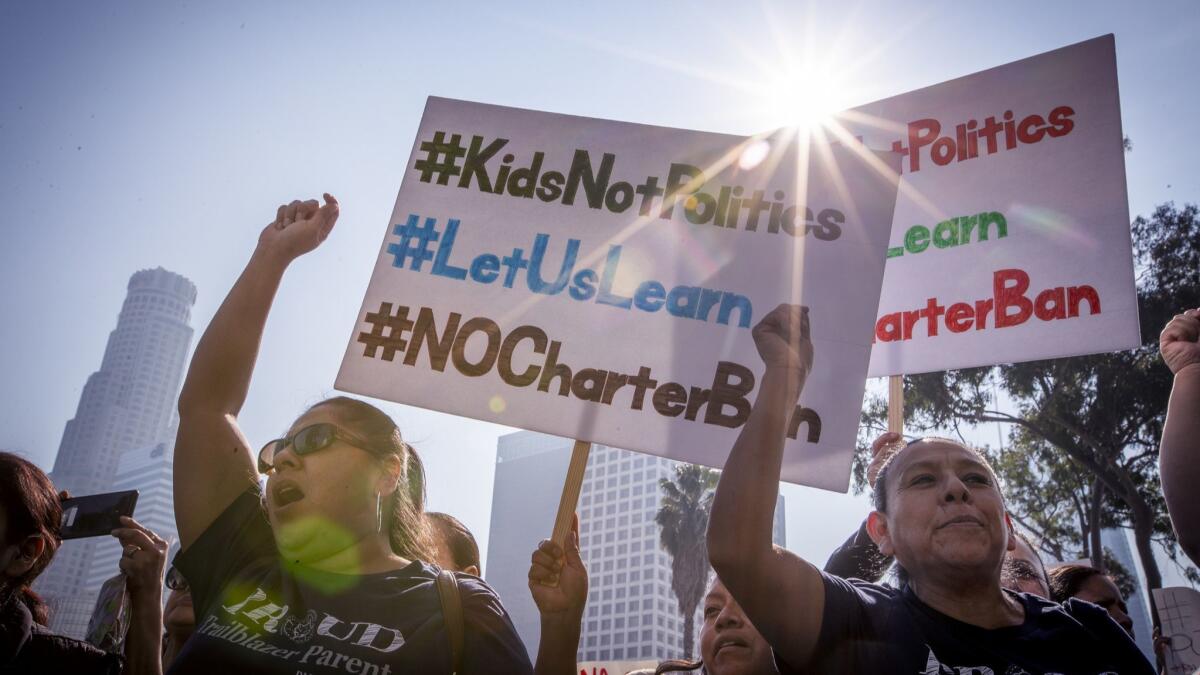
After the task force members were announced, however, critics expressed concern that charters and pro-charter participants were over-represented. The panel included only one teacher.
In the end, however, teachers unions leaders called the report a step in the right direction.
“The task force report makes clear it is time to fix our broken charter school laws,” said Luukia Smith, secretary treasurer for the California Federation of Teachers. State lawmakers “should heed the majority recommendations of the task force in their call for greater local control of charter schools.”
The 11-member body also included representatives from other unions, county education offices and the San Diego school district.
The panel’s 10-page report was frequently short on specifics. For example, the panel recognized that the state’s education office is poorly equipped to provide meaningful supervision for charters authorized by the state Board of Education. But it was less clear on what would be done about that.
These shortcomings were highlighted in a recent Times investigation. It showed that state officials allowed a charter school in South Los Angeles, Today’s Fresh Start, to remain in business despite evidence of conflicts of interest, alleged profiteering and poor conditions at campuses. The school’s operators have denied wrongdoing.
One problem up and down the state has been inconsistent oversight of charters. The panel said California should create one or more entities to develop consistent standards and to train school districts in how to use them.
Some recommendations received majority but not unanimous favor, including limiting when another agency can overrule a local school district’s decision to reject a new charter or close down an existing one.
A majority also wanted to prohibit school districts from authorizing charters located outside district boundaries. Some tiny districts used these faraway charters to generate revenue but provided little to no oversight, as outlined in a Times investigation.
A panel majority also recommended a one-year moratorium on “virtual” charters, which enroll students in an online program. Prosecutors recently indicted 11 people from online charters on criminal charges of conspiracy, personal use of public money without legal authority, grand theft and financial conflict of interest.
State lawmakers also have been debating new charter rules.
In March, the governor signed legislation requiring new transparency standards for charter schools; his predecessor, Jerry Brown, had vetoed similar bills. Wealthy political donors who support charters gave heavily to Newsom’s gubernatorial rival, former Los Angeles Mayor Antonio Villaraigosa.
There’s also a pending bill to limit when a school district can approve a charter outside the district’s boundaries and a bill that would make it easier for local school boards to reject charter applications. But a bill to impose a two-year moratorium on new charters was tabled. It won’t be heard this year.
More to Read
Start your day right
Sign up for Essential California for news, features and recommendations from the L.A. Times and beyond in your inbox six days a week.
You may occasionally receive promotional content from the Los Angeles Times.
